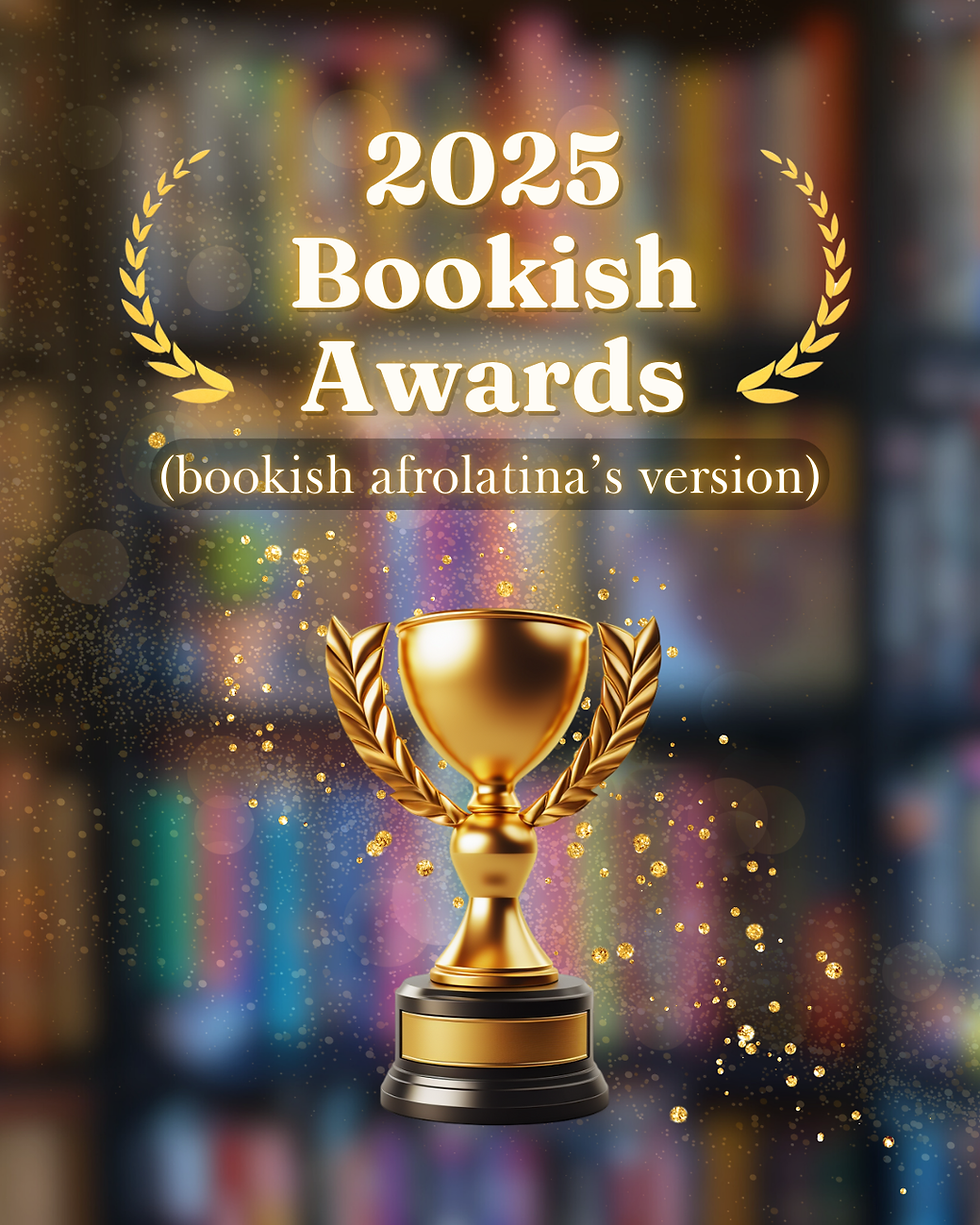Wild Tongues Can’t Be Tamed: 15 Voices from the Latinx Diaspora edited by Saraciea Fennell
- Gabby Womack
- Jul 15, 2021
- 3 min read
Rating: 4.5
*Note: I will be using Latine instead of Latinx in my review for a couple of reasons.
2. Latine is easier for electronic reading.

Description:
"Edited by The Bronx Is Reading founder Saraciea J. Fennell and featuring an all-star cast of Latinx contributors, Wild Tongues Can’t Be Tamed is a ground-breaking anthology that will spark dialogue and inspire hope.
In Wild Tongues Can’t Be Tamed, bestselling and award-winning authors as well as up-and-coming voices interrogate the different myths and stereotypes about the Latinx diaspora. These fifteen original pieces delve into everything from ghost stories and superheroes, to memories in the kitchen and travels around the world, to addiction and grief, to identity and anti-Blackness, to finding love and speaking your truth. Full of both sorrow and joy, Wild Tongues Can't Be Tamed is an essential celebration of this rich and diverse community.
The bestselling and award-winning contributors include Elizabeth Acevedo, Cristina Arreola, Ingrid Rojas Contreras, Naima Coster, Natasha Diaz, Saraciea J. Fennell, Kahlil Haywood, Zakiya Jamal, Janel Martinez, Jasminne Mendez, Meg Medina, Mark Oshiro, Julian Randall, Lilliam Rivera, and Ibi Zoboi." - TheStoryGraph
Review:
This is the first time I've read so many stories reflect my experiences as an AfroLatina! I saw myself in almost every story. Oftentimes, when folx pull together Latine* voices, they choose white or light-skinned Latines because those are the people that U.S. society accepts and recognizes. This time Black and Indigenous folx are the main focus of the book, from Black Dominicans and Cubans to the Garifuna.
"The Price of Admission," by Naima Coster really brought out the pain of trying to salvage a connection with loved ones. Although, I've never witnessed my family members being deported (which is a privilege in itself), I believe that it's extremely important to think about how obsessed this country is with only allowing comfort and safety to those we deem "good immigrants." Coster's explanation of how this expectation fueled a perfectionism in school was very relatable. Not only are Black folks often forced to prove ourselves and represent our race in predominately white institutions, those of us who are also immigrants or descendants of immigrants must prove that our families deserve to be in the United States.
#Julian4SpiderMan by Julian Randall was sweet, creative, and inspiring but I found myself a bit confused by some of the repetition throughout the essay. One line really stuck with me:
"If trying landed me arguing for my own destruction, if great expectations led me into such loneliness, then I wanted to be invisible for good."
Randall beautifully explains how AfroLatines have been forced to split ourselves as if our identities can be separated into halves. We aren't half anything. Our identities are tied to one another and the stories of our ancestors. In fact, many of the essays, like "Abuela's Greatest Gift," by Janel Martinez, were connected to not letting go of our ancestral memories, histories, and cultures.
Kahlil Haywood's "Paraíso Negro" had beautiful storytelling and a fascinating historical connection to the Panama Canal. However, his goal was to illustrate how Black folx should be allowed the multiplicity identity, especially when it comes to speaking Spanish (as well as any other language) without being seen as anomalies or outside of our ethnic groups. I wholeheartedly agree with this message but found it abrupt when the storytelling switched to observations of identity through the U.S. government and Panama.
Some of the essays were heartbreaking like "Eres Un Poncho," by Mark Oshiro, "The Mark of a Good Man" by Meg Medina, and "The Land, The Ghosts, and Me," by Cristina Arreola. Each tied to their cultures, family, and ancestors with experiences of loss and hope of finding oneself. However, each of the stories brought validation and empowerment. These authors refuse to be told who they are, what they deserve or don't deserve, what their lives should look like, and what they should put up with. Whether it be proudly sharing that we are Haitian or Cuban like Ibi Zoboi and Zakiyah N. Jamal, or being open about mental health and depression with our families like Lilliam Rivera. Ingrid Roja Contreras and Elizabeth Acevedo's pieces connect this agency with our right to protect our minds and bodies from others who may believe that they are entitled to us.
"There is plenty of harm in looking in a person's direction and blurring your eyes until you see what you want to see, or you see nothing at all"
"Invisible, "by Ingrid Rojas Contreras
I love that this book can function as a tool of education but, more importantly, as a mirror for our people. Wild Tongues Can't Be Tamed is a wonderful representation for many Latines in the U.S. and I hope we see more like it in the future!







Comments